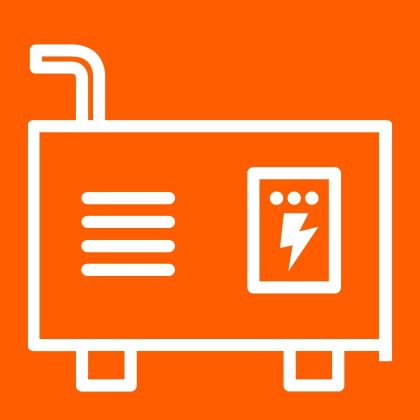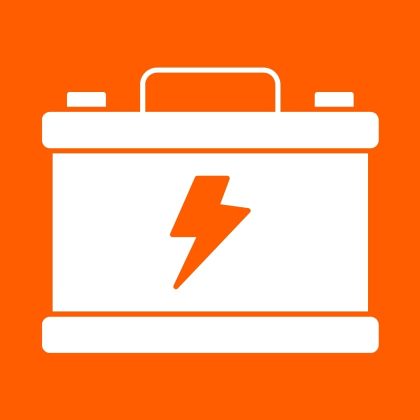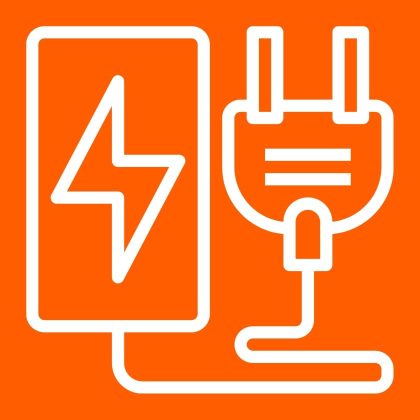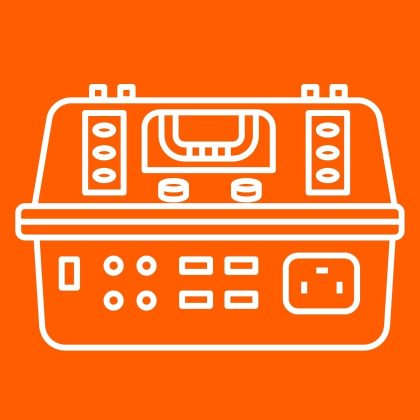Understanding kVA, Power Factor, kW, and Amps in Generators
In the evolving landscape of portable power solutions, from generators to solar panels, questions abound. Here is a concise guide answering some of the most common inquiries about these essential devices.
What does kVA mean on a generator?
kVA (kilovolt-amps) is a measure of apparent power in an electrical system, representing the total power produced by the generator, including both the power used (real power, measured in kW or kilowatts) and the power lost in the system due to inefficiency or stored in the system, reactive power. The relationship between kVA, kW, and the power factor (PF) is crucial in understanding a generators efficiency and capability.
The power factor is a measure of how effectively electrical power is converted into useful work output. It ranges between 0 and 1, with 1 being ideal. In single-phase systems, the power factor is typically close to 1, indicating efficient power use. In three-phase systems, it is commonly around 0.8 due to the inherent inefficiency and the phase difference between the voltage and current.
What is the relationship between kVA, kW, and power factor?
The relationship can be represented by the formula: kW=kVA × PF. For example, a generator with a capacity of 10 kVA and a power factor of 0.8 would have a real power output of: 10kVA × 0.8 = 8kW. This means the generator can effectively supply 8 kW of usable power, with the rest being reactive power.
How to calculate kW on a 3 Phase Generator?
The formula for calculating the kW in a three-phase generator is: kW = √3 × Voltage × Current × PF. Assuming a 240V generator with a current of 10A and a power factor of 0.8, the calculation would be: kW=√3 × 240V × 10A × 0.8 ≈ 3.31 × 240 × 10 × 0.8 = 6,636.8W or 6.64kW.
How to calculate Amps from kVA and kW?
To calculate the current (in amps) from kVA for a single-phase 240V generator, you can use the formula: Amps = kVA × 1000 / Voltage. For a 10 kVA generator at 240V: Amps = 10 × 1000 / 240 = 41.67A. Similarly, to calculate amps from kW for a generator with a power factor of 0.8: Amps = kW / Voltage × PF × 1000. Using the previous example of 8 kW real power: Amps = 8 / 240 × 0.8 × 1000 = 41.67A.
These calculations highlight the interplay between kVA, kW, and power factor in determining a generators capacity and efficiency. Understanding these concepts is crucial for sizing generators correctly and ensuring they meet the specific power requirements of a load without incurring unnecessary losses or inefficiencies.
What does the kVA stand for?
kVA, short for kilovolt-amps, is a unit measuring apparent power in electrical systems. It represents the total power output, including both active (usable) and reactive (non-usable) power. Understanding kVA is crucial for sizing generators correctly to ensure they meet the power demand without overloading.
Will a 10kVA generator run a house?
A 10kVA generator can run a house, but the suitability depends on your home total power consumption. Typically, it can power essential appliances and a few rooms simultaneously, not the entire house at once. It is vital to calculate your total power needs before deciding on the generator size.
What does a 10kVA generator mean?
A 10kVA generator means it has a capacity to supply up to 10 kilovolt-amps of power. This unit indicates the generators apparent power, showing how much electrical power it can provide to both run devices and overcome inefficiencies. It is often used to power smaller-sized homes or construction sites.
How do diesel generators work?
Diesel generators convert mechanical energy from an internal combustion engine into electrical power. Fuel combustion pushes pistons, which turn a crankshaft connected to an alternator, producing electricity. They are known for efficiency and longevity, making them ideal for continuous power supply.
What are the benefits of lithium batteries for camping?
Lithium batteries offer lightweight, efficient, and long-lasting power solutions for camping. They have a higher energy density, meaning more power in less space, and can be discharged and recharged many times without significant capacity loss. Their maintenance-free nature and fast charging capabilities make them perfect for outdoor adventures. The typical lifespan of a lithium battery is 10 years.
Fixed vs. Portable Camping Solar Panels: Which is Better?
The choice between fixed and portable camping solar panels depends on your needs. Fixed panels are ideal for caravans, 4WD’s, RVs or campsites with prolonged stays, offering a steady power supply. Portable panels are flexible, easy to set up, and perfect for on-the-go use, fitting the dynamic nature of camping.
Can portable power stations replace generators?
Portable power stations can replace generators in certain contexts, especially where noise, emissions, or portability are concerns. They are lithium battery-powered, silent, and emission-free, ideal for small appliances and electronics. However, for higher power needs or longer duration, generators might be necessary.
Each power solution offers distinct benefits tailored to different needs, from the reliability of diesel generators to the environmental friendliness of solar panels and the versatility of lithium batteries and portable power stations. Understanding these options ensures you can choose the best for your power requirements, whether at home, on the job, or in the great outdoors.
When it comes to selecting the right generator for your power needs, understanding the various options available is crucial. Generators come in a range of sizes and capacities, with popular options including 2kVA, 2.2kVA, 5kVA, 10kVA, and even larger units like 2500kVA. These generators play a vital role in power generation across various industries, from residential backup to industrial applications.
One of the key factors to consider when choosing a generator is its capacity, typically measured in kilovolt-amperes (kVA). This rating indicates the total amount of power that the generator can produce under optimal conditions. However, it is essential to understand that kVA is a measure of apparent power, which includes both the actual power (kW) used by electrical equipment and the reactive power. Reactive power does not perform any useful work but is necessary for the operation of certain types of equipment.
To convert kVA to kW, you need to consider the power factor (PF), which represents the ratio of real power (kW) to apparent power (kVA). The power factor indicates how effectively the electrical power is converted into useful work output. In generators, a high power factor signifies efficient power use.
For example, a 10kVA generator with a power factor of 0.8 would have an actual power output of 8kW (10kVA * 0.8 = 8kW). Understanding this relationship is crucial for accurately sizing generators to meet specific power requirements without overloading or underutilizing the equipment.
Diesel fuel is commonly used to power generators across various applications due to its cost-effectiveness and reliability. Diesel generators offer efficient power generation, making them popular choices in both residential and commercial settings.
In the generation industry, generators play a vital role in ensuring uninterrupted power supply for critical operations. From powering essential appliances during outages to supporting industrial processes, generators are indispensable assets in maintaining productivity and safety.
When selecting a generator, it is essential to consider factors such as fuel efficiency, reliability, and maintenance requirements. Additionally, understanding the power needs of your equipment and the specific requirements of your application will help you choose the most suitable generator size and capacity.
Whether you are looking for a compact reliable and efficient, 2kVA generator for residential backup power, or a robust 2500kVA unit for industrial operations, there are numerous options available to meet your power generation needs. By considering factors such as power rating, fuel type, and efficiency, you can select a generator that provides reliable and cost-effective power for your requirements.
Generator kVA to KW Chart
What Can 7.5 kva generator Power?
A 7.5 kVA generator can power a variety of equipment and appliances depending on their individual power requirements. However, the exact equipment that can be powered by a 7.5 kVA generator will depend on factors such as the starting and running power requirements of each device, as well as the efficiency of the generator itself.
As a rough estimate, a 7.5 kVA generator can typically power the following:
Lights: Multiple standard household or commercial lights.
Small household appliances: Such as a refrigerator, microwave, television, computer, or fan.
Power tools: Small to medium-sized power tools used in construction or DIY projects.
Office equipment: Such as computers, printers, and copiers.
Communication devices: Such as routers and modems.
Some air conditioning units: Depending on their size and power consumption, smaller air conditioning units may be powered by a 7.5 kVA generator.
However, it is essential to note that some equipment, particularly those with high starting power requirements like large motors or air conditioners, may exceed the capacity of a 7.5 kVA generator, especially during startup. In such cases, it is crucial to assess the specific power requirements of each device and ensure they are within the generator capacity to avoid overloading it. Additionally, the generator power factor and efficiency should also be considered for accurate power calculations.
What kVa Generator Do I Need ?
Determining the appropriate kVA rating for a generator depends on several factors, including the types and total power requirements of the electrical equipment you intend to power. Here is a general guideline to help you determine the size of generator you may need:
Make a List of Electrical Equipment: Start by making a list of all the electrical equipment you plan to power with the generator. Include their power ratings (in watts or kilowatts) if available.
Identify Starting (Surge) and Running (Continuous) Power: For each device, note both its starting power (the power required during startup, which is typically higher) and its running power (the power required to operate continuously).
Calculate Total Power Requirements: Sum up the starting power and running power for all devices you intend to power simultaneously. This will give you an estimate of the total power (in kilowatts) required.
Consider Power Factor: Some loads, particularly those with motors, may have a low power factor. The power factor correction needs to be considered when calculating the apparent power (kVA) required by the generator. You may need to consult with an electrician to accurately determine the total kVA requirement.
Choose a Generator: Once you have calculated the total power requirement (in kilowatts or kVA), choose a generator with a rating slightly higher than your calculated requirement to provide a safety margin and accommodate any future expansion.
Consider Load Balancing: If you plan to power multiple devices simultaneously, consider load balancing to distribute the load evenly across phases if the generator is a three-phase system.
Consult an Electrician: For complex setups or if you are unsure about your calculations, it is always best to consult with a qualified electrician who can assess your specific needs and recommend the appropriate generator size.
Remember, it is essential to choose a generator with the correct capacity to avoid overloading, which can damage both the generator and the electrical devices connected to it.
Extensive Product Lineup
Our product lineup at KVA Generator is second to none. We offer high-quality diesel generators, quality portable generators, and specialised power products for camping and caravanning. Our commitment to meeting the specific needs of our Australian customers is unwavering, as we continually strive to offer the best power products in the market.
More Than Just Products
At KVA Generator, we believe in providing comprehensive power solutions that enhance lifestyles and streamline business and mining operations. Our products are instrumental in supporting government emergency power requirements.
Eco-Friendly Power Solutions
Our range of quality lithium batteries and portable power stations are perfect for eco-friendly power solutions, ideal for 4WDs, caravans, and camping adventures. We are dedicated to supporting sustainable power and contributing to net zero targets with our off-grid solar panels and inverters, tested under the harshest Australian conditions.
Independent Power and Monitoring
Understanding the growing need for independence from traditional power grids, KVA Generator stocks reliable battery monitors and battery management systems (BMS). These products offer our customers the autonomy they seek from conventional power sources and high power bills.
Reputation for Quality and Support
We pride ourselves on our reputation for delivering quality products at competitive prices. Our unparalleled customer support is the cornerstone of KVA Generator, setting us apart in the power industry. We are more than just a retailer; we are your trusted partner in powering your world, committed to providing innovative and reliable power solutions.
Join Our Satisfied Customers
Choose KVA Generator for outstanding customer service, exceptional after-sales support, and solid warranty. Explore our range and join our growing list of satisfied customers who trust KVA Generator as their preferred choice for power solutions. We proudly sell only the best brands in the business, including Honda Generators, Genelite, Blue Diamond, Genesys, Diesel Fuel, Hyundai, EcoFlow, Yamaha Generator, Kubota, Cummins, Kohler, Perkins, Yanmar Generators, Enerdrive and Zeal Lithium Batteries, Bluetti Portable Power Stations, Gentech Generators, and more.
Comprehensive Support and Warranty
Our unyielding dedication to customer satisfaction sets us apart. We understand that purchasing power products is a significant investment, which is why we offer iron-clad warranties on all our products. Our comprehensive support system, coupled with our Australia-wide dealer network, ensures VIP service and support for every customer.
Express Shipping Nationwide
We deliver anywhere in Australia. All products are dispatched via express courier service within 3 business days, ensuring prompt delivery. We use reputable freight carriers like TNT, Toll & Star Track Express, guaranteeing efficient delivery across the Australian east coast within 2-3 business days and 5-7 business days to all other major locations.
Explore Power Solutions: Diesel Generators, Lithium Batteries, Portable Power Stations, Solar Generators and Solar Panels
kVA to kw Chart









